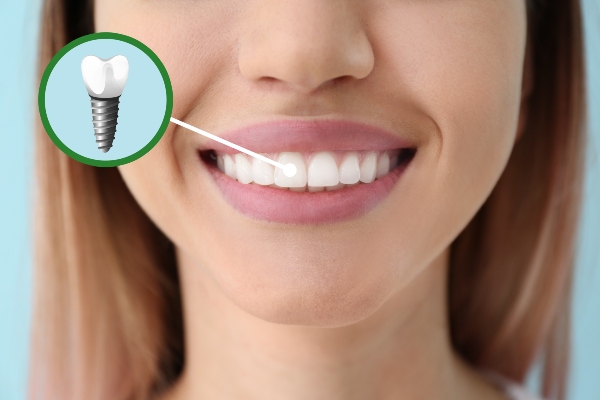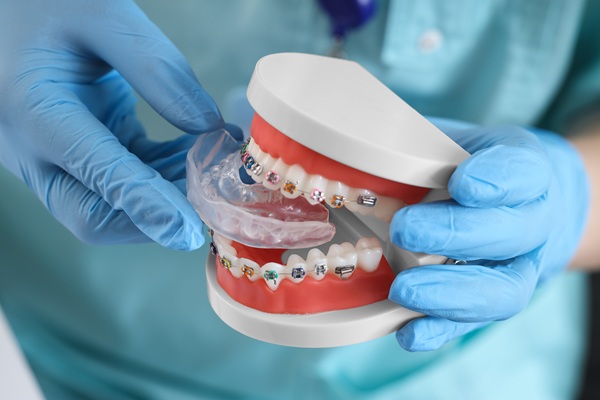 Dental implants are small, titanium screws placed into the jawbone where a tooth was removed. The implant fuses with the jawbone over time and supports a crown, bridge, or denture. This article will review six warning signs that it is time to inquire about dental implants.
Dental implants are small, titanium screws placed into the jawbone where a tooth was removed. The implant fuses with the jawbone over time and supports a crown, bridge, or denture. This article will review six warning signs that it is time to inquire about dental implants.
6 Signs You May Need Dental Implants
1. Missing tooth or teeth
Many people (adults) postpone receiving treatment after losing a tooth or teeth. Doing so harms the rest of their mouth. One missing tooth can also cause the shifting of other teeth, leading to many issues, such as malocclusions, gum disease, and jawbone deterioration. So, imagine if someone is missing multiple teeth.
2. Jawbone deterioration
Jawbone deterioration is a serious problem that can result from tooth loss or damage and gum disease. If one does not have enough teeth to support their jawbone, the bone will shrink and become malformed, causing deformities in the shape of the face. This can sometimes lead to pain, difficulty eating, and bone infection.
3. Difficulty chewing and speaking
When one is missing multiple teeth, it can make it difficult to chew properly and even alter their speech. This is because the tongue and teeth go hand-in-hand in helping patients perform these acts normally. Therefore, if teeth are missing, the tongue is without a significant amount of support, making it harder for the mouth to say certain words or letters.
When chewing food, one uses several different muscles in the mouth. These muscles move together to grind food into smaller pieces to make swallowing easier without choking or gagging. If multiple teeth are lost, these muscles need to work harder to chew food effectively as they would otherwise. This can lead to fatigue, discomfort, and pain, making many patients miss out on their favorite foods.
4. Loose full or partial dentures
If one is experiencing loose dentures or partials, this is a sign the jawbone is deteriorating. As the jawbone deteriorates, it becomes less able to support the teeth and gums. Dental implants will stabilize the area around the mouth by providing a foundation for new teeth. They also work as an anchor for newly-fitted dentures or partials, preventing further jawbone deterioration.
5. Impacted teeth or infection
Once a tooth becomes impacted or infected (and cannot be cured with prescriptions), the dentist will likely recommend removing the tooth. An impacted tooth cannot erupt into its proper position because there is not enough room in the mouth or a neighboring tooth has grown in front of it. Many people experience impacted wisdom teeth, which do not require dental implants. However, all other teeth that will cause a noticeable shift in the patient’s mouth will require a replacement.
6. Broken or severely damaged teeth
Broken teeth can cause severe pain if the tooth root is exposed and damage to the surrounding tissues and bone. In some trauma cases, broken tooth fragments can even be lodged in the gum tissue. If the dentist determines that the tooth is beyond saving after an examination, they may recommend an extraction, dental implant, and a crown. This treatment plan will restore the smile’s appearance and functionality.
Learn More Today
Dental implants are a great option for those who have lost their teeth due to trauma, illness, or aging. They are durable and can last for many years to come. If you are experiencing any of the above symptoms, contact our office and schedule a consultation today. Our team can answer any questions and determine if dental implants are most effective for you.
Request an appointment or call Miami Implant & Family Dentists at 305-230-4040 for an appointment in our Miami office.
Recent Posts
A dental implant is widely considered the tooth replacement solution that most closely resembles a natural tooth in durability, functionality, and appearance. However, like natural teeth, dental implants require diligent and consistent care to ensure longevity. Incorporating proper dental implant care into your oral hygiene routine can prevent complications and keep your smile healthy for…
Dental issues can impact confidence, health, and overall well-being. Fortunately, modern dentistry offers a transformative solution: teeth in a day. This procedure offers patients an option to fully restore the function and appearance of their smile in a single appointment, removing the need for multiple visits over several months. With advancements in dental implant technology,…
Many people resort to using dentures instead of dental implants in managing tooth loss. Dentures may restore the look of the lost tooth or teeth, but they do not compare to implants. Many dentists may recommend shifting to implants. The goals are to increase comfort and improve function. If you want to know how to…


